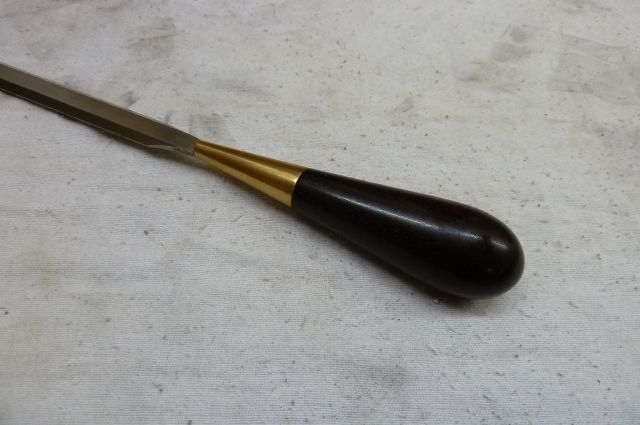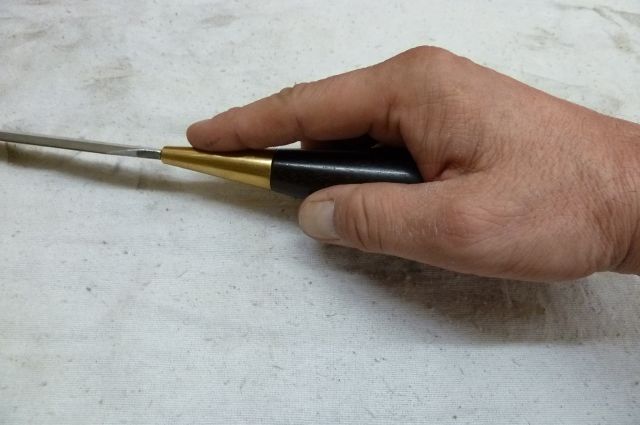I'm not sure there's a 'right' answer, because it depends a bit what you want a paring chisel to do.
As it happens, I have a couple of Sorby parers, which are long, very thin and slightly flexible, which allows you to control their cut a little with adjustments to finger pressure on the back near the cutting edge and at the same time slightly raising the handle. They're delicate tools for fine work. Mine had a little evidence of grinder marks on the flat face near the edge, but didn't take much sorting out; they sharpen easily and edge-taking is excellent; edge-holding is good enough for most people, though not in the 'everlasting steel' league.
I also have a couple of Henry Taylor examples, which are altogether heavier in section and pretty well inflexible. The finish when new was very good (polished), but flatness was a not quite as good as the Sorbys. Sharpening is easy, the edge is good, and edge life acceptable without being exceptional. These are the sort of parers that would be good for jobs that need a bit more force, like flattening wooden plane beds.
My favourite parer is one I inherited from my grandfather - and it wasn't new when he acquired it. It's by I Sorby, probably late 19th century, has a thin blade that tapers in thickness down from shoulder to edge, and tapers down in width very slightly from edge to shoulder. The sides (which since it's so thin, don't really amount to much!) are not quite square to the flat face, but bevel by about 5 degrees. In all, it's a most subtle piece of forging and grinding. It takes an edge like no other chisel I own. Chisels like it do come up on the dealers' websites and Ebay reasonably frequently, but not as often as paring gouges, for some reason. The one Undergroundhunter linked to above is very similar to it.
Sadly, I don't think there's any such thing as a cheap paring chisel these days. The price of some on Ebay makes my eyes water, but then a good new 1 1/2" or so is pretty steep too. I think it's a tool you really have to need to justify, these days.



































